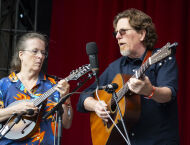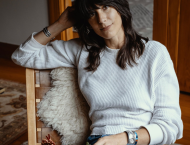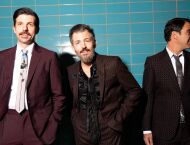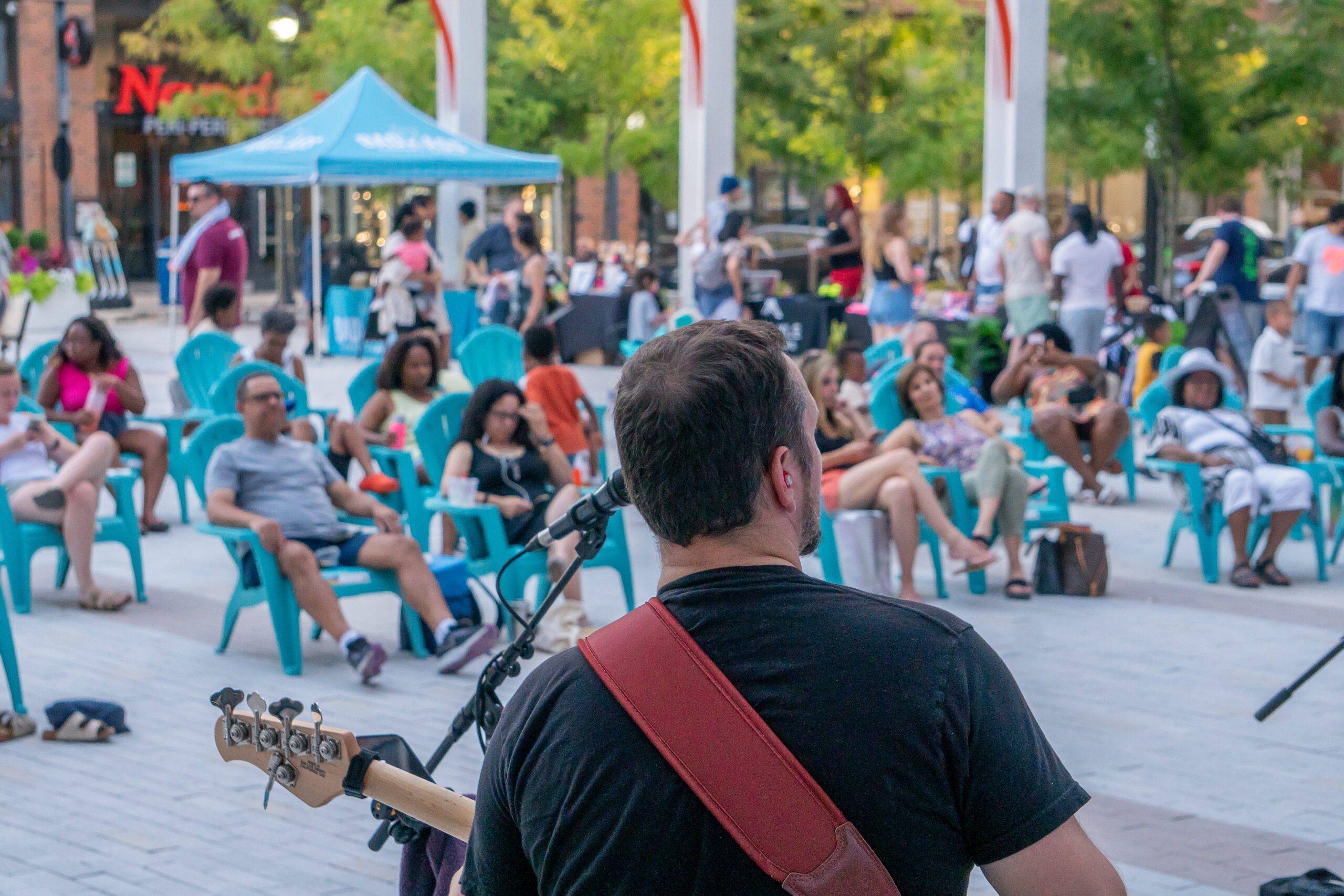Music
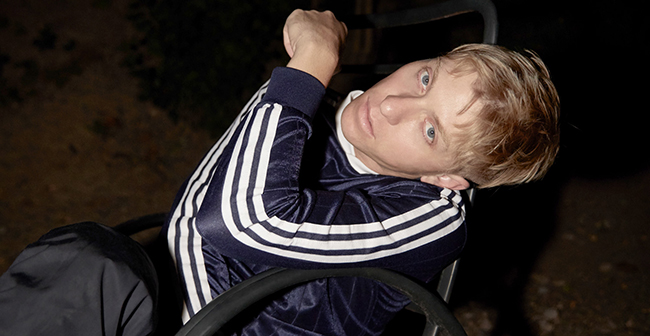 Photo: Nicholas Moore
Photo: Nicholas Moore
Brutally Honest: The Drums’ Jonny Pierce Talks New Record, Importance of Vulnerability
April 27, 2019 @ 12:00am
The Drums are now two albums into the band’s genesis as the solo project of frontman Jonny Pierce. As the indie-pop outfit’s cast dwindled from four to one during their decade-long career, Pierce saw himself doing everything from letting remaining bandmates have more creative freedom to totally leaning into his own voice and vision. That brings us to the April release of Brutalism: the sensitive, honest and enlightening look into Pierce’s life that you’ll probably relate to even more than you might guess.
As Pierce embarked on a journey through vulnerability via his latest album, he decided to bare all in his music as a way to encourage a more empathetic and open world. Pierce talks us through his use of architectural imagery, the importance of sharing the good and the bad in the age of social media, and how letting outsiders into his creative process led to one of the most affecting pop albums in recent memory.
On Tap: I want to start by asking about the title track.
Is this a reference to Brutalist architecture?
Jonny Pierce: When I was writing this record, I was in a relationship that
wasn’t so good for me. There was a lot of passion and some version of something
close to love happening. It was something where I loved deeply but didn’t get
that kind of love back. All of those things that Brutalist architecture talks
about – heavy and hard and practical without a lot of light getting in – made
it feel like an appropriate title.
OT: What lead you to compare love to that style? What are
your thoughts on it?
JP: At the time, I was living in Belgium and in Brussels, there’s a bunch
of Brutalist architecture. When I would get really upset or needed to take a
walk, I was always greeted by all these different beautiful buildings. It
really reflected how I was feeling and the nature of the relationship [I was
in], and that relationship was going on during much of the writing and
recording process of Brutalism.
OT: Lyrically, you seem to be more vulnerable than
before. What lead to this openness?
JP: I want to live in a world where people make themselves more vulnerable
on a daily basis. It doesn’t mean we have to be vomiting our emotions out all
over the floor at all times, but I just feel that privacy is overrated and
people are so guarded. And with new things like Instagram, we’re showing more
and more of our happy days and our good times and people don’t talk much about
when they’re feeling sad or lonely or depressed. There’s this unspoken new code
where we are really starting to only show the good sides. I feel all sides that
make up who we are are good sides, even if it’s sadness or loneliness or
feeling angry. It’s all good stuff because it’s natural and normal and part of
the human experience.
OT: How did you come to this realization, and why
incorporate it into this record?
JP: Rather than complaining about how people aren’t more vulnerable, I
wanted to try to lead by example. What really has happened is that I know my
music is connecting more to people. To make work that feels meaningful and
affecting is such a different animal than writing a song about surfing and
being kind of silly and fun. By expressing how we feel, even if that’s being
sad or confused or lost, that’s where we pull together and the magic happens.
That’s where good art comes from. It’s not a doom-and-gloom situation. It’s a
real search for joy.
OT: Vulnerability can be really scary at times. Was moving
in this direction hard for you?
JP: It’s not so scary because it still feels better than not speaking my
truth. Some journalists have tried to capitalize on this in a way that feels
insensitive to me. They’re digging in and trying to get as much vulnerability
as possible instead of just letting me give that – just for the sake of having
a juicy story. It’s one of those things I didn’t intend [for] but have to be
careful of.
OT: I found myself connecting to some aspect of every
song on this album, even though they’re very much about your specific truths
and life experiences. Have you found a lot of other people reacting in that way
to Brutalism?
JP: The Drums have become a band, a group, a project of music for
sensitive people. It connects with the people who live their lives with greater
sensitivity – who are used to looking at life from a few different angles [and]
figuring out how to be creative, exist in this life and not hate themselves. I
think this level of vulnerability scares some people because they’re not ready
to really connect. They’re not ready to really go there.
OT: It’s almost like the music is holding a mirror to the
listener and they’re not ready to see themselves reflected in it.
JP: Definitely. It’s like how a lot of – I’ll speak to my own experience –
a lot of straight guys pretty much refuse to get into female-fronted music. I
think it’s literally because if they enjoy it or connect with it, they think it
emasculates them. I think in the same way, some people aren’t ready to connect with
me speaking my truth because it means they’re attached to that truth. It’s just
something I’ve observed. The moral of the story is we’re all just a little bit
more advanced than straight men. You can print that, I don’t care! [laughs]
OT: We’ve talked a lot about lyrical inspiration, but how
about musical inspiration? What were you listening to as you worked on Brutalism,
and how was the recording process for this album different?
JP: The inspiration [for the band’s sound] came from this idea of girl
groups from the 60s meets Joy Division. Kind of an unlikely combo, but it
became the character of the band. I wanted to protect that because I thought by
not letting outside influences in, I could really preserve the band as best as
possible. With Brutalism, I decided I had done enough of that. Through
working with my therapist and just taking better care of myself, I was able to
come to the conclusion that having such tight control over everything and
shutting the world out was a greater risk than it was to open up. I decided to
start working with other people. There were different ideas and opinions coming
in.
OT: Any specific influences for this new direction you
have taken with Brutalism?
JP: A lot of the specific inspiration came from a band called Whale.
They’re from Sweden in the 90s and they did these druggy trip-hop sounds and
their record went nowhere but I think [it’s] incredible. I was listening to a
lot of them and some electronic stuff. I’ve always been a big fan of drum and
bass, techno and house music. We tried to infuse a little more of that. I just
tried to be more honest in the words but also in the sounds that I love. Why am
I holding back? Let’s just do it.
The Drums play the Black Cat on Saturday, May 11 with
Tanukichan. Tickets start at $20. Doors are at 8 p.m. For more on The Drums,
visit www.thedrums.com.
Black Cat: 1811 14th St. NW, DC; 202-667-4490; www.blackcatdc.com


